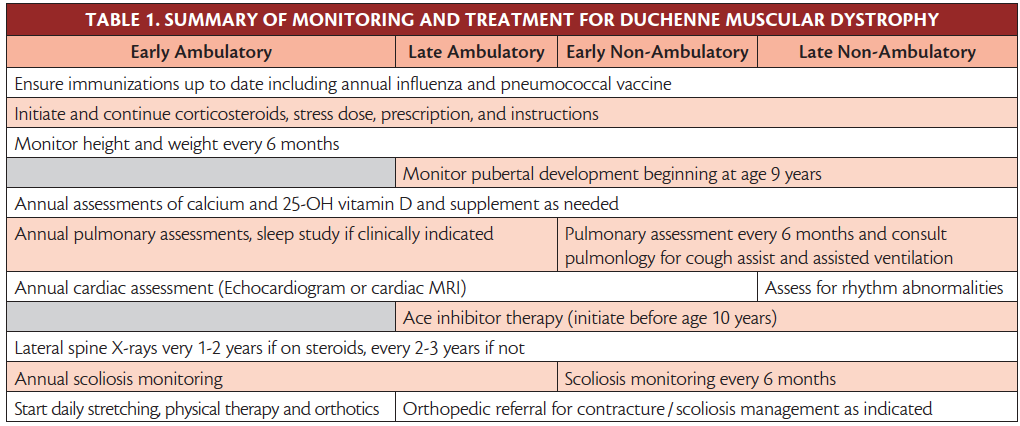
Corticosteroids For The Treatment Of Duchenne Muscular Dystrophy. IMPORTANT SAFETY INFORMATION Contraindication. Prolongation of walking is a major aim of treatment. In summary there is substantial evidence to recommend the use of corticosteroids to all DMD patients with the objective of preserving walking time as long as possible and reducing lung heart and orthopaedic complications 2. Scientists determined mechanisms of how glucocorticoid steroids improve muscle repair and function in mouse models of acute.

Request PDF Corticosteroids for the treatment of Duchenne muscular dystrophy Background. Do not use if you are allergic to deflazacort or any of the inactive ingredients in EMFLAZA. Evidence from randomised controlled trials RCTs indicates that corticosteroids significantly improve muscle strength and function in boys with DMD in the short term six months and strength at two years two-year data on function are very limited. Corticosteroids for the treatment of Duchenne muscular dystrophy Moderate quality evidence from RCTs indicates that corticosteroid therapy in DMD improves muscle strength and function in the short term twelve months and strength up to two years. There are currently variations in practice in corticosteroid use. There are many types of corticosteroids that may be prescribed for muscular dystrophy.
The most effective prednisolone regime appears to be 075 mgkgday given daily.
Viltepso is an antisense oliogonucleotide indicated for the treatment of Duchenne muscular dystrophy DMD in patients who have a confirmed mutation of the DMD gene that is amenable to exon 53 skipping. Corticosteroids may preserve muscle tissue by reducing both inflammation and immune system attacks on those tissues. In the short term adverse effects were significantly more common but not clinically severe. Corticosteroids now part of care recommendations for DMD are largely in routine use although. IMPORTANT SAFETY INFORMATION Contraindication. Corticosteroids slow the decline in muscle strength.